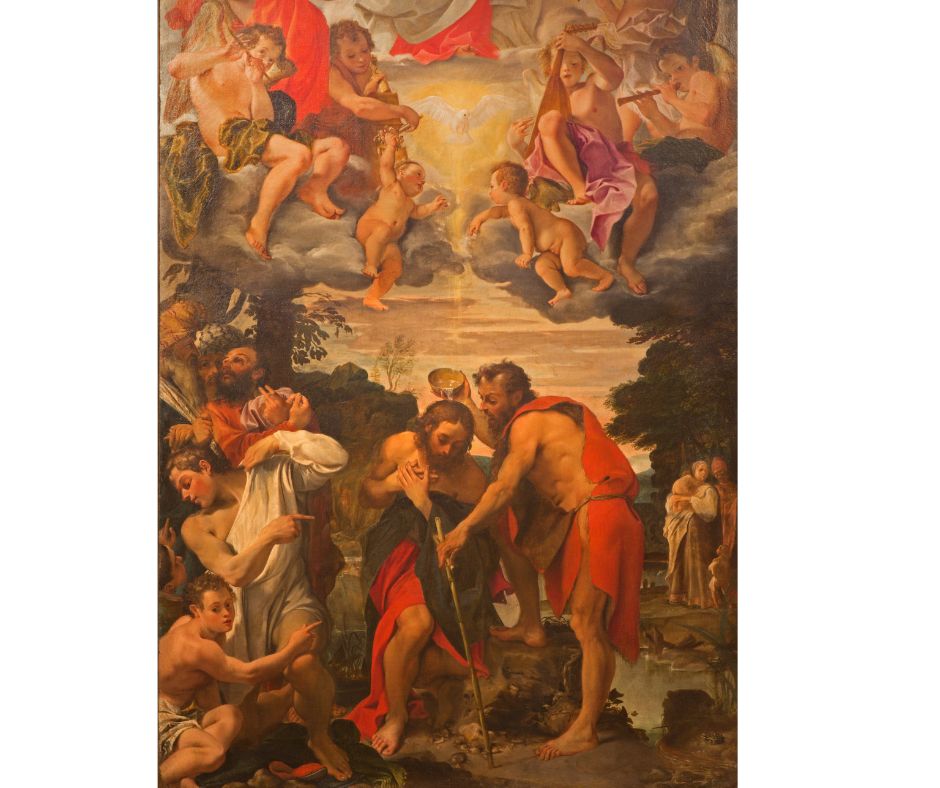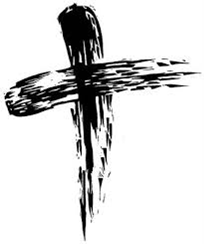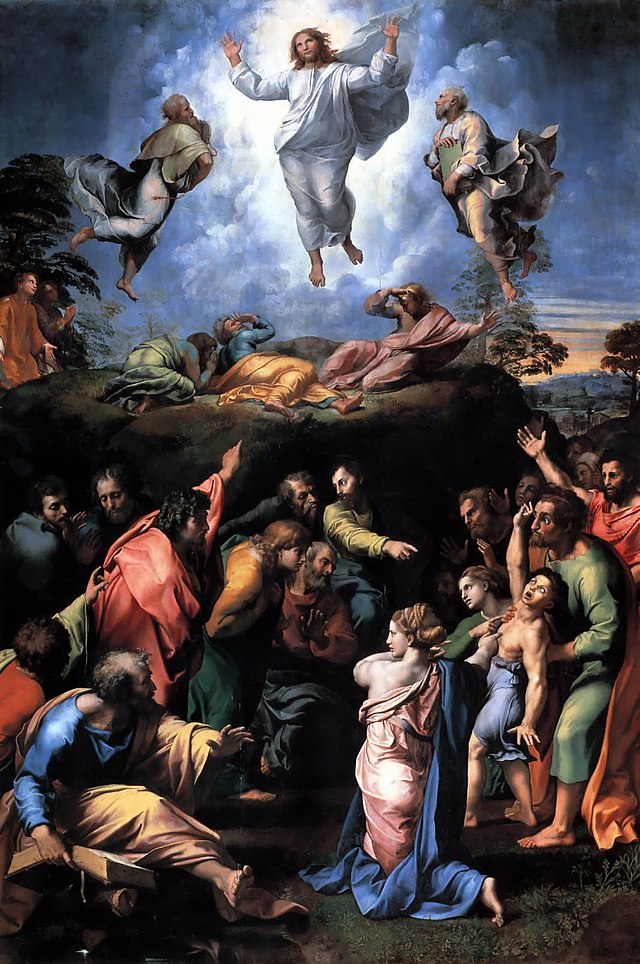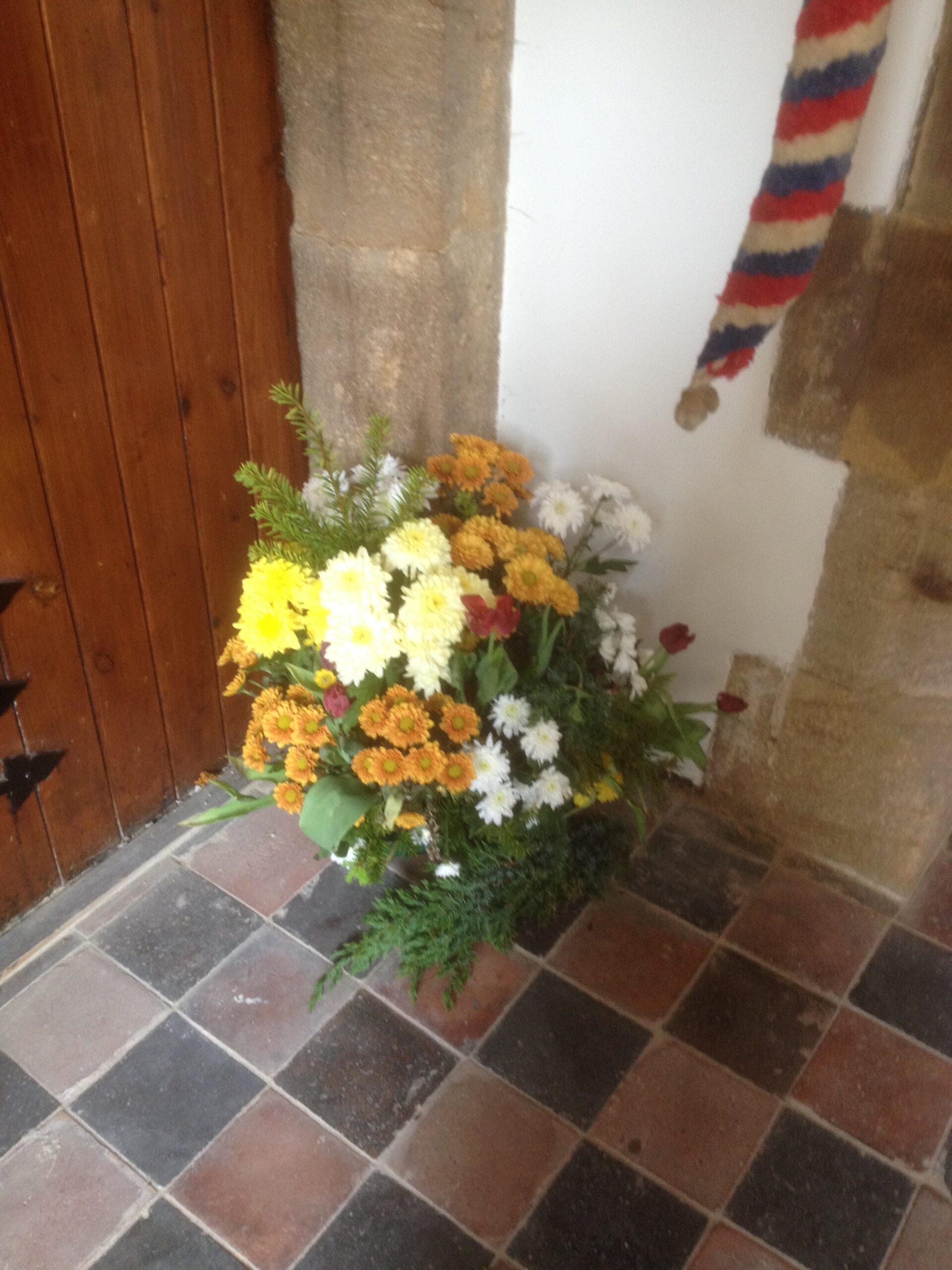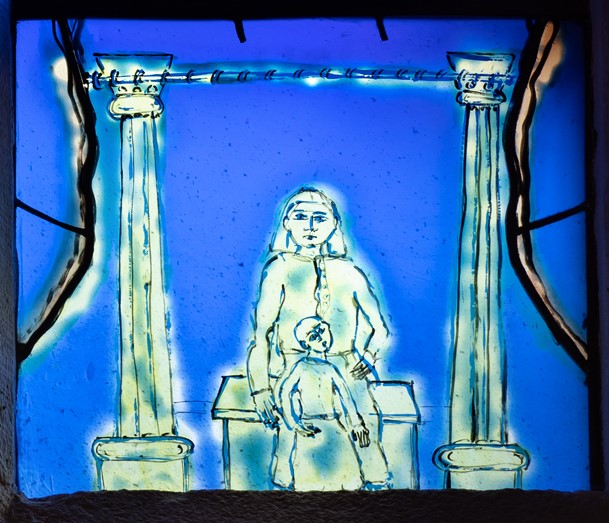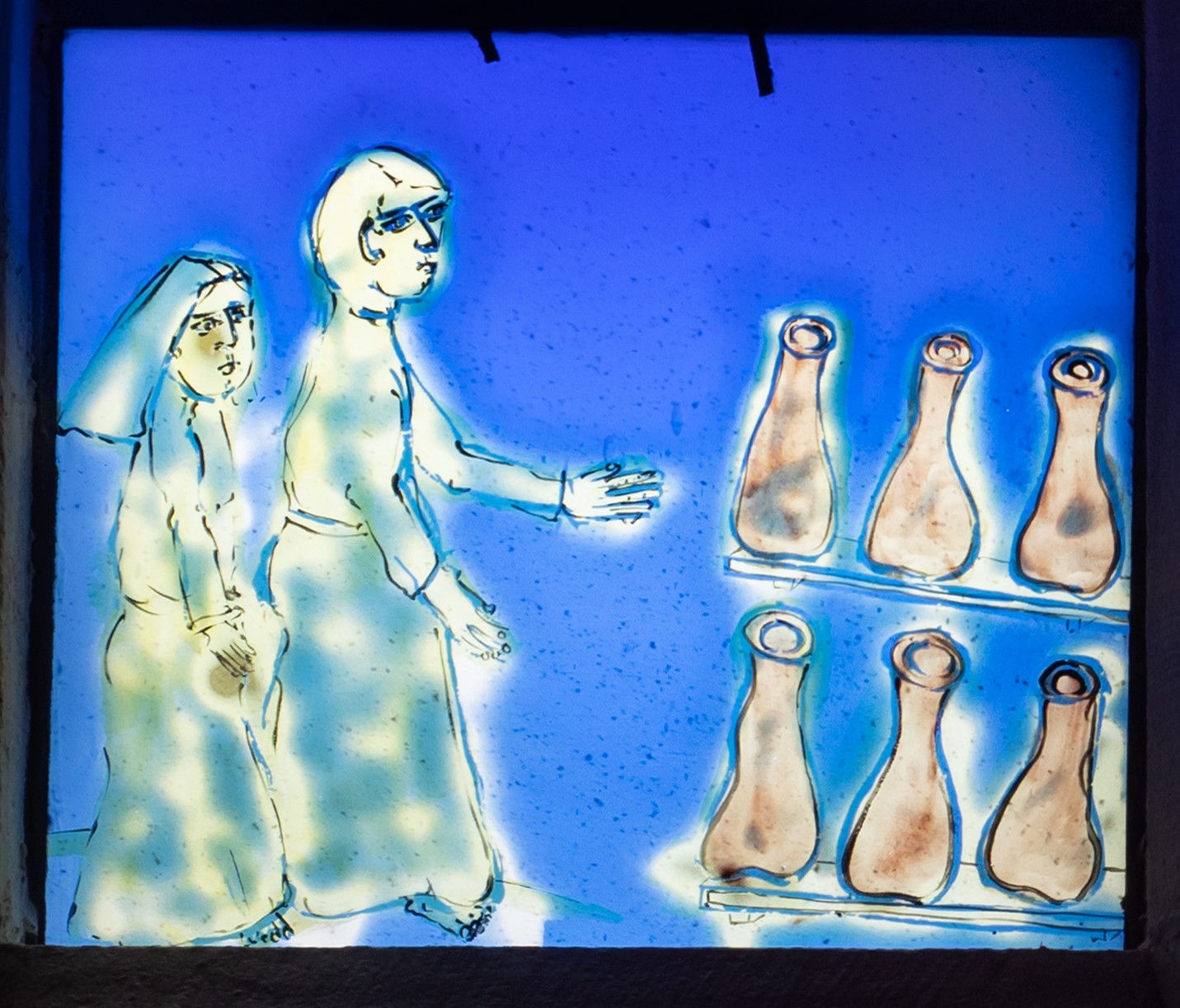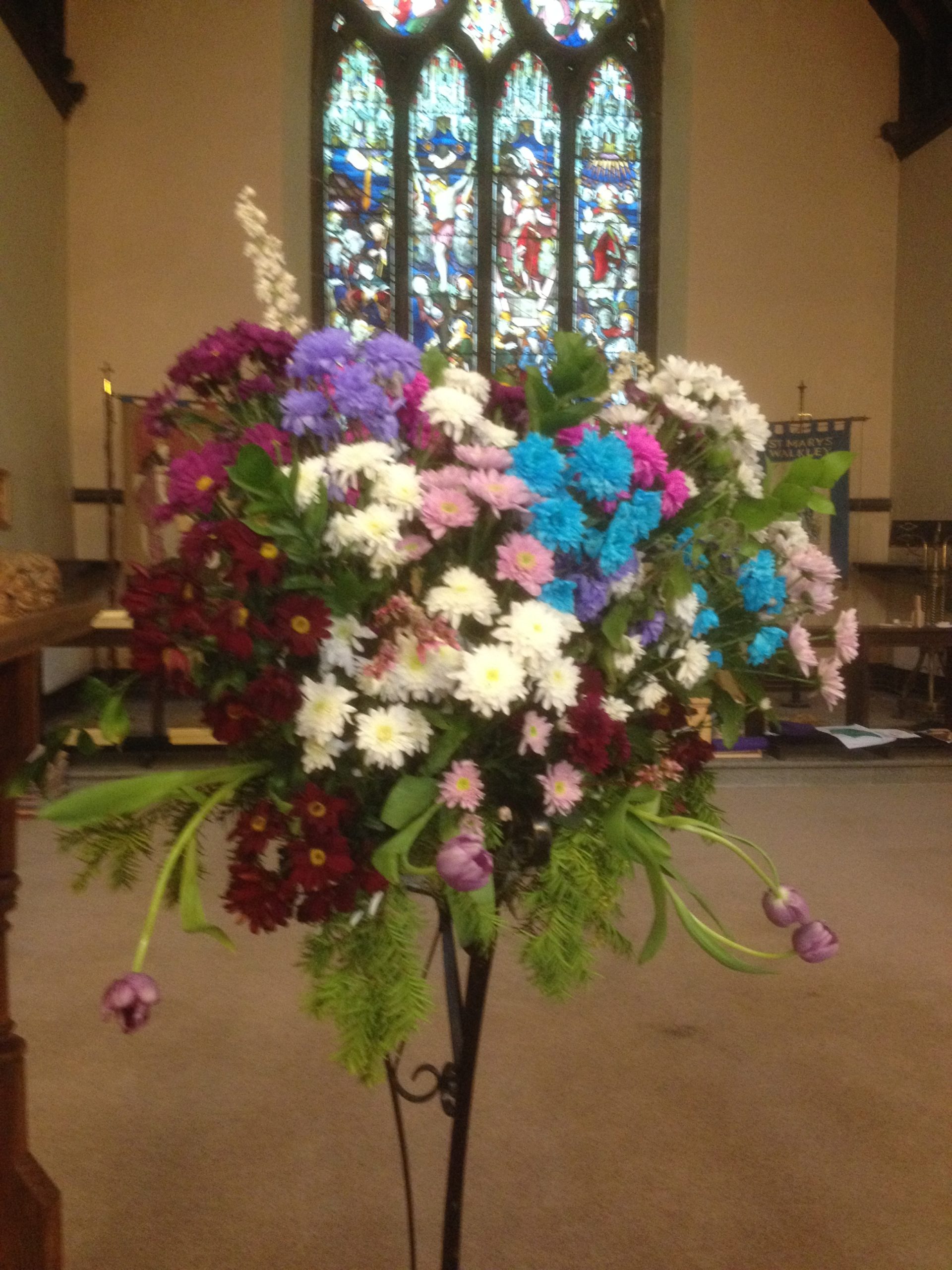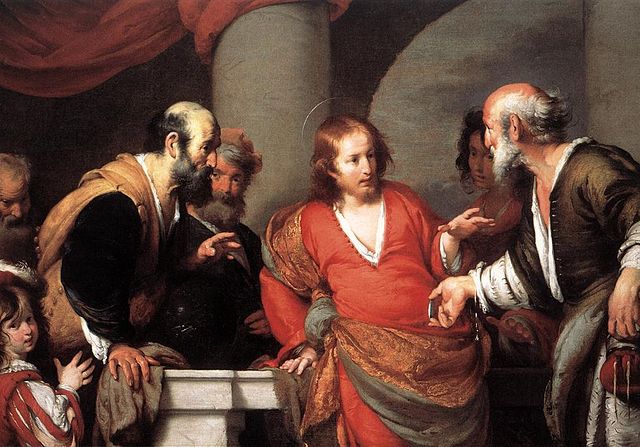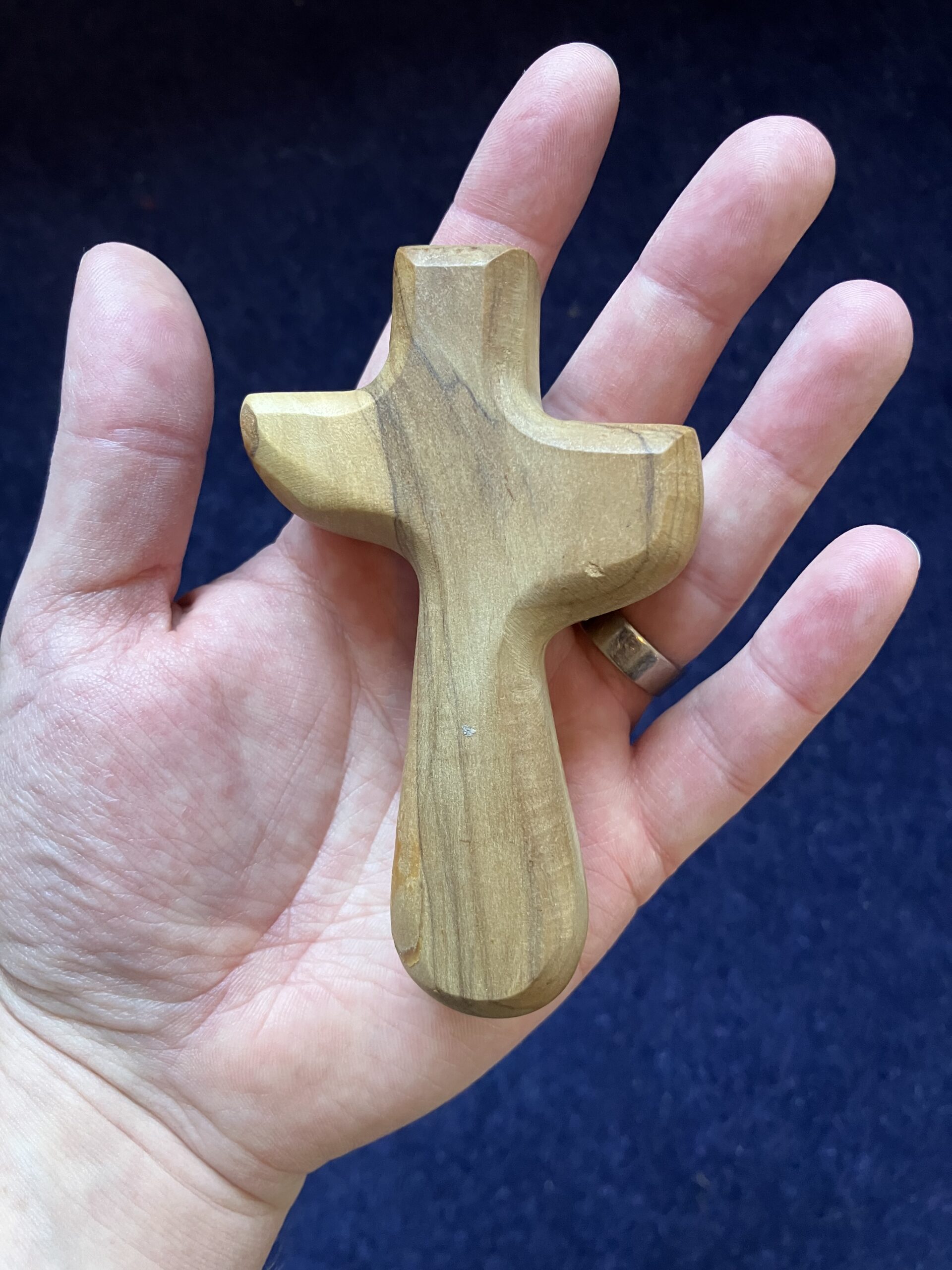
Watch this week's service on YouTube
Download the order of service here: 24 02 25 The Second Sunday of Lent Eucharist
Read this week's Church News
The Readings
Romans 4.13-25
For the promise that he would inherit the world did not come to Abraham or to his descendants through the law but through the righteousness of faith. If it is the adherents of the law who are to be the heirs, faith is null and the promise is void. For the law brings wrath; but where there is no law, neither is there violation. For this reason it depends on faith, in order that the promise may rest on grace and be guaranteed to all his descendants, not only to the adherents of the law but also to those who share the faith of Abraham (for he is the father of all of us, as it is written, ‘I have made you the father of many nations’)—in the presence of the God in whom he believed, who gives life to the dead and calls into existence the things that do not exist. Hoping against hope, he believed that he would become ‘the father of many nations’, according to what was said, ‘So numerous shall your descendants be.’ He did not weaken in faith when he considered his own body, which was already as good as dead (for he was about a hundred years old), or when he considered the barrenness of Sarah’s womb. No distrust made him waver concerning the promise of God, but he grew strong in his faith as he gave glory to God, being fully convinced that God was able to do what he had promised. Therefore his faith ‘was reckoned to him as righteousness.’ Now the words, ‘it was reckoned to him’, were written not for his sake alone, but for ours also. It will be reckoned to us who believe in him who raised Jesus our Lord from the dead, who was handed over to death for our trespasses and was raised for our justification.
Mark 8.31-38
Then he began to teach them that the Son of Man must undergo great suffering, and be rejected by the elders, the chief priests, and the scribes, and be killed, and after three days rise again. He said all this quite openly. And Peter took him aside and began to rebuke him. But turning and looking at his disciples, he rebuked Peter and said, ‘Get behind me, Satan! For you are setting your mind not on divine things but on human things.’ He called the crowd with his disciples, and said to them, ‘If any want to become my followers, let them deny themselves and take up their cross and follow me. For those who want to save their life will lose it, and those who lose their life for my sake, and for the sake of the gospel, will save it. For what will it profit them to gain the whole world and forfeit their life? Indeed, what can they give in return for their life? Those who are ashamed of me and of my words in this adulterous and sinful generation, of them the Son of Man will also be ashamed when he comes in the glory of his Father with the holy angels.’
Scripture Quotations are from: New Revised Standard Version Bible: Anglicized Edition, copyright © 1989, 1995 National Council of the Churches of Christ in the United States of America. Used by permission. All rights reserved worldwide. http://nrsvbibles.org
The Sermon
By Catherine, Reader at St Mary's.
“Preach with the Bible in one hand and a newspaper in the other!”
This advice is often given to preachers. Look at what’s in the news and then explore what insights the
Bible might be able to offer to situations in the world today.
This week’s news has focused on the death of the Russian opposition leader Alexei Navalny.
Navalny loved his country. He longed for a day when Russian people could prosper freely under a fair
democracy. A time without corruption. A day when you could safely disagree with those in power. He
spoke out. And he suffered. Having survived one assassination attempt, people urged him not to return to
Russia. But he thought it hypocritical to oppose the regime from the safety of somewhere else. So he
went back, was arrested, imprisoned, tried, convicted and sent to Siberia. And now he has died. Navalny
fought for truth and justice, put himself in danger...and paid the ultimate price.
I wonder if any of you, thought that today’s gospel reading seemed quite apt for this week’s news? What
might it have to say for this situation?
“Who do people say that I am?” Jesus has asked his disciples a few verses earlier.
“John the Baptist” they reply. “Or Elijah maybe – or one of the prophets”.
Understandable answers. Jesus has indeed been behaving very much like any one of these people.
“Who do YOU say that I am?” Jesus then asks.
Peter is quick to answer
“You are the Messiah!”
Jesus then orders them not to tell anyone. Why?
Life under Roman occupation is challenging. Its so-called “peace” is maintained by effective, but brutal
laws and a punitive tax system. Worship is permitted but heavily regulated. The prophets have told of a
Messiah who will rise up and defeat the oppressor. The people of Jesus’ time, including Peter and the
others, assume this Messiah will be a warrior, who will bring about God’s justice, defeating the Romans
through force, as did the kings of old.
Jesus, however, has quite a different understanding of “Messiah”. And it’s important that the disciples see
this understanding before they tell other people. Today’s reading is the first of three attempts by Jesus to
explain to them what being the Messiah really means.
The disciples don’t get it. A Messiah who will be arrested, tried, tortured and killed, who would then arise
again after three days? This does not compute. The first time they hear this teaching, Peter takes Jesus
aside and tries to argue with him. But Jesus rebukes him quite publicly, even calling him Satan. When
Jesus brings up the subject again a little further on in the gospel, none of the disciples dare to question
him. They are too scared.
What does Jesus mean by “Messiah”?
Last week we heard of how after his baptism, Jesus was then driven by the Holy Spirit into the
wilderness, where he stayed for forty days and was tempted by Satan. He then goes back to Galilee
preaching the good news of God. People should repent because God’s kingdom is near. Jesus
demonstrates this by healing the sick, driving out evil spirits, feeding the hungry and teaching with
authority. The Messiah is God in person, come among them, doing what God does.
Human kingdoms come and go. The Roman Empire is one such kingdom, it lasts for a while in time and
space. But God’s kingdom is outside time and space and for all eternity. But Jesus’ disciples can’t see
that yet. The religious authorities and Roman rulers can’t see it either. They see in Jesus a political and
religious agitator that must be stopped. The human kingdom will come into conflict with God’s eternal
kingdom. And Jesus knows this, which is why he foretells his suffering and death. And why he tells
anyone wishing to be his follower to expect the same treatment.
Alexei Navalny was not the Messiah. He was a human being, fighting against a brutal and unjust human
regime. He hoped to make a political difference in his country here and now. But like Jesus, Navalny
understood that sometimes you have to put your own life aside in order to try to make life better for
others. Like Jesus, he did this with seriousness, but also with humour. Like Jesus, he did this with love.
Jesus and Navalny knew they would suffer for their actions. But there’s one crucial difference - Jesus
also foretold that the Messiah would rise again after three days. And that it was only through his death
AND resurrection that God’s kingdom could fully come to pass. For you can’t keep God down.
The Prayers
Prepared by David - to be added shortly
In the power of the Spirit and in union with Christ, let us pray to the Father.
We pray for your world, for those places where human greed and corruption cause damage to the beauty of creation. We pray for those who suffer due to violence and hatred. We pray for peace, for understanding between peoples and a respect for your creation.
Lord of compassion,
in your mercy hear us.
We pray for your church, that it may faithfully witness to the gospel throughout the world. We pray for Pete and Sophie our bishops, our partner churches, St Marks and St Johns, and all who share our common life here at St Marys.
Lord of compassion,
in your mercy hear us.
We pray for our communities, for our homes and places of work, our schools and universities, our social networks and clubs. May they be places of welcome, hospitality and friendship. We pray for our community of Walkley, for our shared life together and for fruitful partnerships.
Lord of compassion,
in your mercy hear us.
We pray for those who suffer in body, mind or spirit. The ill, the lonely, the anxious and the depressed. We pray for knowledge of your presence alongside those who suffer. We give thanks for those who heal and care for others, for their skill and dedication.
Lord of compassion,
in your mercy hear us.
We pray for those who have died, those from our own lives who we have loved and see no longer, and those who have died in this past night with no one to pray for them. We give thanks that they lived and pray for those who mourn their loss.
Lord of compassion,
in your mercy hear us.
We pray for ourselves, for all that lies ahead in the coming week, help us to know you are with us throughout our daily lives.
Lord of compassion,
in your mercy hear us.
Merciful Father,
accept these prayers
for the sake of your Son,
our Saviour Jesus Christ.
Amen.
Common Worship: Times and Seasons, material from which is used here is copyright (c) 2010 The Archbishops' Council


